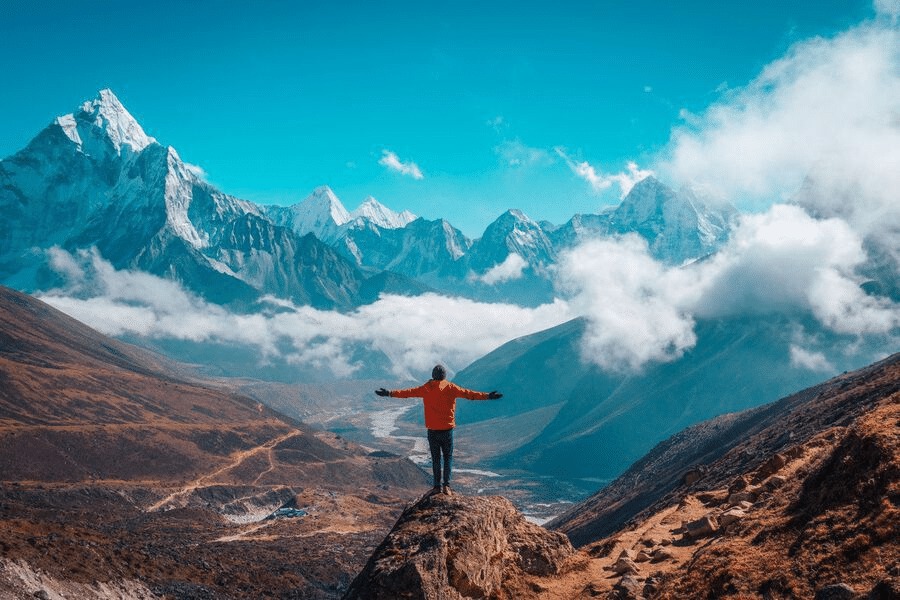In recent years, the concept of eco-trekking has gained significant traction, especially in popular trekking destinations like India and Nepal. As travelers increasingly seek to explore nature's beauty, they must also acknowledge their impact on the environment. Eco-trekking not only emphasizes minimizing harm to the ecosystem but also advocates for sustainable practices that enhance the trekking experience. This article will delve into the principles of eco-trekking and offer practical tips for trekkers, focusing particularly on famous trails like the Mt. Everest Base Camp Trek.
The Mt Everest Base Camp Trek is one of the most sought-after trekking experiences globally, attracting adventurers from all over the world. While the allure of this iconic trek lies in its breathtaking landscapes and rich Sherpa culture, it also presents significant environmental challenges. The surge in tourism has led to increased waste, habitat degradation, and pressure on local resources. Therefore, adopting eco-friendly practices is crucial for preserving the natural beauty and cultural integrity of the region. As trekkers, it is essential to recognize the responsibility that comes with exploring these pristine environments.
Understanding Eco-Trekking
Eco-trekking refers to the practice of trekking in a manner that conserves the environment, respects local cultures, and promotes sustainable tourism. This concept encourages trekkers to engage with nature without compromising its integrity. It encompasses various practices, including responsible waste management, conservation of natural resources, and respect for local communities.
Trekkers should aim to leave minimal footprints on the trails, ensuring that their adventures do not disturb the delicate ecosystems they traverse. This commitment to sustainability extends beyond the trek itself, influencing the choices trekkers make in terms of transportation, accommodation, and food.
Sustainable Practices for Trekkers
- Leave No Trace Principles: One of the foundational elements of eco-trekking is adhering to the Leave No Trace principles. These guidelines encourage trekkers to carry out whatever they bring into nature. This includes packing out all trash, leftover food, and personal items. On the Mt. Everest Base Camp Trek, it is crucial to be mindful of littering, especially in popular spots like Gorak Shep and Kala Patthar, where waste can accumulate quickly.
- Choose Eco-Friendly Gear: The equipment and clothing trekkers use can significantly impact the environment. Opt for eco-friendly gear made from sustainable materials and ensure that it is durable and long-lasting. Brands that focus on ethical manufacturing processes and minimize their carbon footprint should be prioritized. Additionally, consider using biodegradable soaps and shampoos to reduce pollution in water sources.
- Support Local Communities: Trekking in India and Nepal provides an excellent opportunity to engage with local cultures. Supporting local economies by purchasing goods and services from local artisans, guides, and porters can foster sustainable tourism. During the Mt. Everest Base Camp Trek, hiring local guides not only enriches the trekking experience with insights into the culture and landscape but also contributes to the local economy.
- Water Conservation: Accessing clean drinking water can be challenging in remote areas, so it is crucial to use water resources wisely. Bring a reusable water bottle and consider using water purification tablets or filters to ensure safe drinking water while minimizing plastic waste. When trekking near water bodies, avoid washing dishes or clothes directly in the water to preserve the ecosystem.
- Responsible Wildlife Interaction: Many trekking routes in India and Nepal pass through wildlife habitats. Trekkers should maintain a respectful distance from animals and avoid feeding them, as human interaction can disrupt their natural behaviors and diets. Observing wildlife from afar allows trekkers to appreciate the richness of biodiversity without causing harm.
- Stay on Designated Trails: Straying off established paths can lead to soil erosion and damage to delicate plant life. Staying on marked trails helps to preserve the surrounding environment. In regions like the Everest region, where trails can be narrow and sensitive, sticking to designated routes is essential for protecting the local flora and fauna.
- Offset Your Carbon Footprint: Traveling to remote trekking destinations often involves carbon emissions, particularly if air travel is required. Consider offsetting your carbon footprint by investing in reforestation projects or renewable energy initiatives. Many organizations offer programs that allow trekkers to contribute to environmental sustainability efforts, making their journey more eco-friendly.
Education and Awareness
Education plays a crucial role in fostering eco-trekking practices. Trekkers should familiarize themselves with the local environment, including its flora, fauna, and cultural heritage. Understanding the ecological significance of the areas they visit can motivate trekkers to act responsibly. Workshops and training sessions on sustainable trekking practices are increasingly available in popular trekking hubs, providing valuable knowledge for both novice and experienced trekkers.
Additionally, sharing experiences and lessons learned with fellow trekkers can create a ripple effect, encouraging others to adopt sustainable practices. By fostering a community of eco-conscious trekkers, the positive impact of eco-trekking can be amplified.
Conclusion
Eco-trekking is not merely a trend but a necessary approach to ensure that the beauty of India and Nepal's landscapes endures for future generations. By embracing sustainable practices, trekkers can enjoy their adventures while minimizing their impact on the environment. The Mt. Everest Base Camp Trek serves as a powerful example of the need for responsible tourism, emphasizing the importance of preserving both the natural and cultural heritage of the region.
As trekkers embark on their journeys, they must remember that their actions can influence the delicate ecosystems and communities they encounter. By following the principles of eco-trekking, individuals can contribute to a sustainable future for trekking in India and Nepal, ensuring that the trails remain vibrant and accessible for years to come. In doing so, they not only enrich their own experiences but also play a vital role in protecting the planet for generations of adventurers to come.





Comments